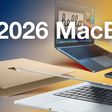
NFCWorld reports that AuthenTec has sold off its Embedded Security Solutions (ESS) division to a company called Inside Secure for $48 million, leaving Apple with its fingerprint sensors and identity management assets.
Authentec's Embedded Security Solutions (ESS) division designs, develops and sells a range of embedded security solutions, centered on the use of encryption algorithms and security blocks to protect data and ensure confidentiality, integrity and availability.
TechCrunch suggests one of the reasons for the sell off of this non-core technology is to avoid any regulatory hurdles in the AuthenTec acquisition.
If the initial Reuters report of the acquisition remains accurate, it recoups investment on parts of the business which aren’t essential to Apple’s plans. It also ensures that once any deal is finalized, there will be less to worry about in terms of Apple gaining undue control over tech essential to the securing of its competitors products, which might raise red flags with regulators
Apple had been reported to have acquired AuthenTech back in July for $356 million. Speculation had already claimed that Apple was primarily interested in AuthenTec's fingerprint scanning technology for future devices. Several current customers of AuthenTec's fingerprint sensors were already been forced to quickly look for alternative suppliers.


















